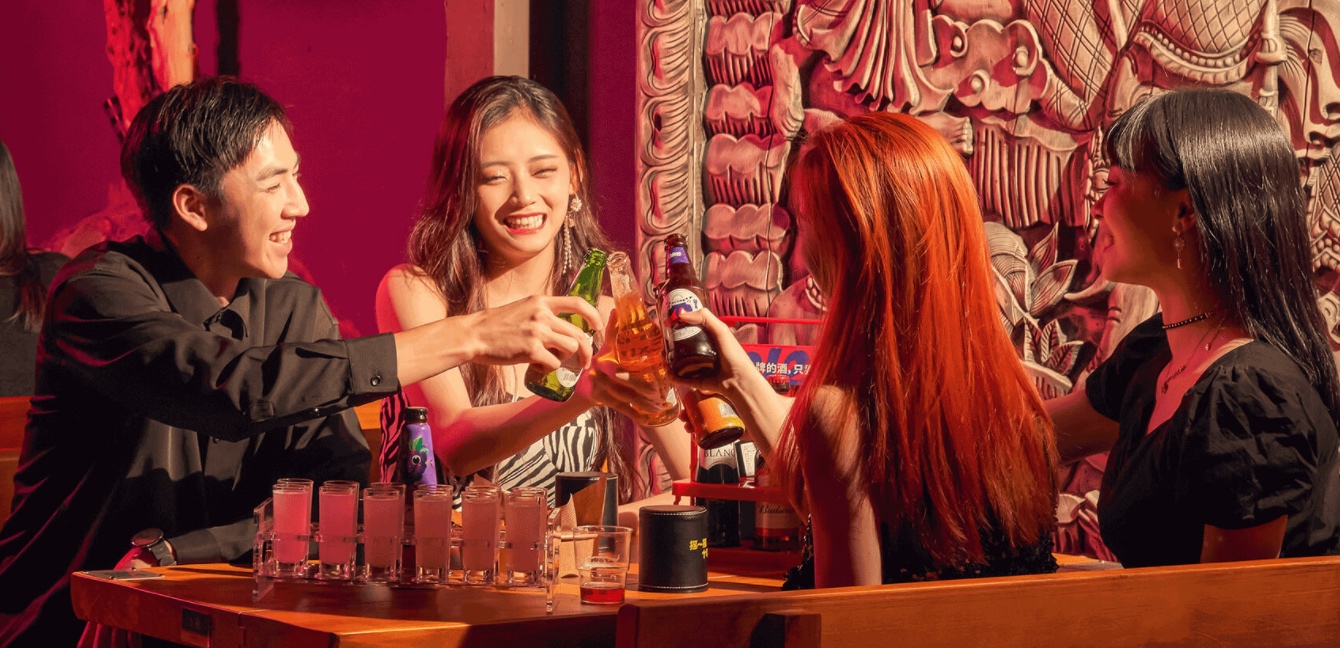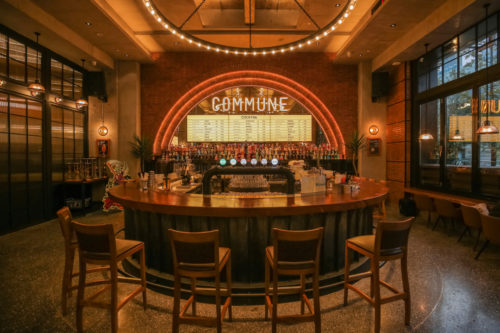English pub chain Helen’s to IPO as enormous offline social network
As many businesses moved online last year, an old English tradition gained traction among Chinese youths. A pub chain’s IPO may signal the rebirth of offline spaces.

Endless beers, greasy food, and restless Chinese youths all gathered in one place. An English tradition is gaining traction in mainland China, but it’s not being marketed as Ye Olde English Pub or Cool Britannia. Helen’s International (海伦司), which operates more than 350 pubs across China, bills itself (in Chinese) as “an offline social platform for young people.”
The formula is working. On March 30, Helen’s, which says it is now China’s largest pub chain, submitted a prospectus (in Chinese) for an initial public offering on the Hong Kong Stock Exchange in a sign of renewed vitality in the offline hospitality industry. According to the prospectus, the operating revenues of Helen’s were $17 million, $86 million, and $125 million in 2018, 2019, and 2020 respectively. In 2020, it registered $11 million in profits.
Founded in 2009 by Xú Bǐngzhōng 徐炳忠, a military veteran, Helen’s says its secret sauce is “highly efficient and timely service combined with trendy music, [to] bring our customers a carefree, relaxed, and enjoyable night atmosphere.”
With over 350 offline stores in over 80 cities, including Beijing and Shanghai, the company’s bars are already immensely popular in Chinese cities. Service staff are predominantly in their twenties and thirties, the same age as most patrons, and Helen’s is famous for selling its own products. According to 36k (in Chinese), 70% of its beverage sales come from branded beverages, including Helen’s root beer, craft beer, fruit drinks, and milk beer. The rest come from non-proprietary beverages, such as Corona and Budweiser.
As the pandemic sent China’s vast online retail sector into overdrive last year, offline businesses — such as restaurants, shops, and bars — have faced an uncertain future. “It’s really hard to face 2 million yuan [$305,000] of expenses every day as soon as you wake up,” Xu told Xinhua (in Chinese) during the throes of the pandemic last year.
But spring 2021 is here. Helen’s is planning its IPO, and there are other notable signs — such as a 2,500-store uptick in bookstores — that the offline economy is recovering strongly.
According to the company’s prospectus, despite declining sales in the first half of 2020, the pub chain opened 105 new pubs last year. Its monthly revenues grew from $5.5 million in April to $21 million in December, and its annual growth was a confident 44.8%. In a post-pandemic, hyper-digitized China, investors, entrepreneurs, and shop owners are all seeking new ways to drag Chinese youths out the door into the ever-evolving, offline wilderness — and Helen’s is one to watch.
Among the distinctive features of Helen’s is its marketing strategy aimed toward Chinese youths. In December last year, the company used Douyin (China’s version of TikTok) to promote the “Helen’s Coke Bucket” (#Helen’s 可乐桶#), a signature beverage made from whiskey and Coca-Cola served in a large stainless steel drink dispenser.
Users who come to the pub and upload a video of them drinking the enormous beverage with the Helen’s Coke Bucket hashtag receive a coupon for the whole table. The promotion was viewed more than 1 billion times (in Chinese) and the Coke Bucket is now the pub chain’s best-selling drink. According to a survey conducted by the consulting firm Frost & Sullivan, Helen’s had a 93% satisfaction rate (in Chinese) among customers who visited the bar.
As shopping and even social interactions move online, Helen’s has a more ambitious goal: positioning itself as the physical gathering space for Chinese youths who want to escape from the virtual communities of Weibo and TikTok, what the website calls an “offline social platform.” Known as the “third place” — referring to social fora that are neither the home nor the office — the concept is central to the value proposition of Starbucks, which presently dominates China’s offline ecosystem for people who just want to hang out. With more than 4,000 stores across the country, China is Starbucks’ biggest market behind the U.S. “From cafes to milk tea shops to bars, everyone wants to be Starbucks,” said a tech blogger (in Chinese).
Among those inspired by Starbucks’ success in China is Hé Yú 何愚, Helen’s International’s $33 million backer and managing partner at Black Ant Capital, a consumer-focused investment fund. A veteran investor in the new consumption space, He’s portfolio includes some of China’s fastest-growing brands such as health beverage startup Genki Forest, toy retailer Pop Mart, and milk tea powerhouse HeyTea. He is responsible for branding Helen’s as the “Starbucks of the Night.”
As The China Project reported last week, bookstores have also been inspired by Starbucks’ “third place” policy. They are now being billed as multipurpose “cultural complexes” that combine books with other amenities like cafes, restaurants, and souvenir shops to attract new customers. Xú believes that Helen’s can be the “third place” of China’s nightlife. Out of the roughly 35,000 pubs in China, only 5% have more than three locations. Helen’s, with more than 300 stores, is the industry leader in China’s pub scene and a formidable competitor — along with Starbucks, restaurants, and bookstores — for China’s emerging “third place” market. With the company’s IPO, the race to reclaim offline spaces is about to begin.

